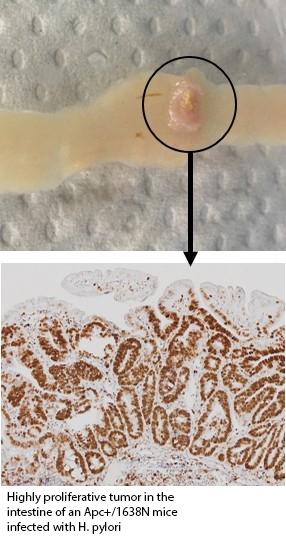Although colonizing the stomach, chronic H. pylori infection has been related to a number of extragastric diseases. In particular, H. pylori has been recently associated with increased risk for colon cancer, although the mechanisms by which the bacterium contributes to colon carcinogenesis remain elusive. We hypothesize that inflammation, disturbances to the intestinal microbiota, and metabolic alterations in response to H. pylori infection, all combine in a multifactorial process to promote the development of colon cancer. Associated with the Collaborative Research Centre 1371(link is external), we are conducting a comprehensive analysis of the immune response, the microbiome alterations, and the metabolome changes elicited by H. pylori infection in mouse models of colon carcinogenesis. Beyond the elucidation of mechanisms involved, we aim to identify a risk profile for colon cancer development during H. pylori infection that can be validated in a human cohort. This project is supported by the German Research Foundation (DFG GE 2042/21-1).

